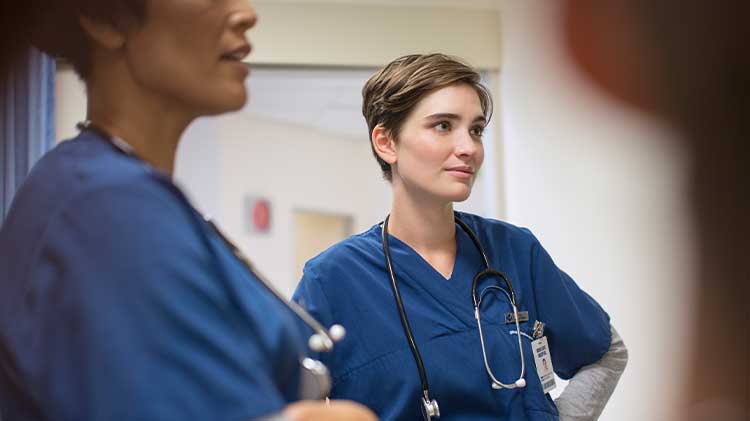Social Networking Stories of Success and Strife
11 Sep 2013

Learning from the stories of others can help you navigate this potentially grey and challenging area. Below are some cases that have resulted in triumph or trouble for healthcare professionals using social networking.
Facebook can be your friend
An interesting Facebook story is that of a patient in an Emergency Department with a likely psychiatric presentation, including amnesia, who the doctors believed had a child in daycare needing to be collected but they had no way of contacting next of kin. The doctors “googled” the limited information they had about the patient and her husband. They found his Facebook page which listed the company he worked for so they were able to call him. Thus the child was looked after and the distressed patient received partner support. The doctors were about to notify the police and child protection services before they googled the husband.1
Another example of effective Facebook use is a practice employing it to promote a fitness challenge. Patients and staff posted photos of themselves doing challenges and uploaded the results which provided positive competitive motivation and strengthened the sense of community.2
It is important that the public can access reliable medical information online and social media produced by health organisations and practitioners is very useful, e.g. the Mayo Clinic has a Facebook community of cancer survivors which provides connection and a resource and ideas exchange.
Blog benefits
Blogs can be a useful tool for doctors. An example is Life in the Fast Lane (LITFL) which is a medical blog and website dedicated to providing online emergency medicine and critical care education with good humour and enthusiasm. Headed by emergency physicians and intensivists based in Australia and New Zealand, LITFL promotes the Free Open Access Meducation (FOAM) revolution by being free and accessible to all.3
Neat tweets
When a person who was dying of cancer posted their “bucket list” on Twitter, awareness of the role of bone marrow registries increased worldwide.2 Twitter use at medical conferences often assists attendees to understand, share and apply information.
It is possible that Twitter could be used to enable patients’ families and friends to follow what is happening during surgery rather than the experience of waiting with no news. A patient himself used Twitter to access support of family and friends during a varicose vein procedure. A surgeon tweeted to announce a novel surgical outcome because of its information dissemination speed.4
Wise web boards
Online discussion boards benefit doctors by providing a platform for education including analysis of case studies and journal articles, e.g. The Global Medical Education Project (GMEP) is an Australian case discussion forum. This new and growing tool is free and provides openly available education resources with opportunity to track your performance and share achievements.5
Patients can also find support online, e.g. The Australian National University’s BlueBoard provides an internet discussion forum (that is supervised by a clinical psychologist) for people with depression, bipolar or anxiety disorders. Caregivers also highly value online peer support groups because they do not involve travel, require less time, provide an opportunity to talk with diverse people (including doctors), and can be anonymous.6
But doctors have used social media unprofessionally
Australian examples
The Medical Board of New South Wales issued a warning to a doctor in 2010 about making “flippant and at times derogatory comments about patients” on a social networking site. This ended up making headline news in the Sunday Telegraph.7
MDA National had a junior medical officer (JMO) Member who had disciplinary proceedings begun for filming a hospital Resident Medical Officer Association’s picnic day skits and putting them on YouTube. This act was deemed to have brought the hospital’s reputation into disrepute and breached hospital policy of not publicly commenting on political and social issues because the video could have been interpreted as being official.*
A Queensland medical student was expelled from his political party after making comments online about the United States’ President that were considered racist.8 This received news coverage.
International examples
In the United Kingdom, a JMO was suspended for 6 weeks after calling a senior colleague a foul name on a social network.9 Doctors and nurses in the UK were suspended for posting photos of themselves playing the “lying down game” (also known as “planking”) in a hospital on Facebook.10 This incident was quite widely reported in news media.
A number of US medical boards have taken serious disciplinary action in response to a doctor’s social media use.11 An interesting US example is that a Mississippi healthcare worker was suspended and subsequently resigned for an indirect reference on Twitter to a governor’s medical appointment 3 years prior – for which staff had to provide the service at an irregular time – even when no detailed personal medical information was exposed.4
A Rhode Island physician was fined and her hospital position terminated for inadvertently identifying an Emergency Department patient on Facebook. While no names or direct personal health information were revealed, the description of the patient’s injuries contained enough detail for a third party to identify that patient.2
Another doctor lost a medical negligence claim involving the death of one of his patients when his posts were used against him in court. The doctor – using a pseudonym and pretending to be an external party – blogged about the trial, criticising the plaintiff’s case, lawyer, and jury, and commented that the patient was maliciously neglected resulting in death. Although the doctor was posting under a pseudonym, the plaintiff’s lawyer was advised of his online identity, showed the jury some of the postings, and asked the doctor on the stand whether he wrote the blogs. The doctor admitted his involvement and the case was immediately settled.12
Doctors have failed to get a job because of information found online, e.g. of poor conduct, witchcraft interest, intoxication.9
Medical students have been expelled in the US for unprofessional conduct online. Problematic incidents include students breaching patient privacy, using inappropriate language, and being obviously intoxicated.13
Four US nursing students were temporarily dismissed from their nursing program after posing for photos with a human placenta and one photo was posted on Facebook. While the person the placenta came from could not be identified, the nurses’ apparel identified the institution. The college considered the behaviour “… insensitive and disrespectful toward the mother and the human tissue …”14
Tip: Pause before you post!
Great care needs to be taken to maintain privacy and professionalism when posting information online.
MDA National delivers workshops on online professionalism. For information about hosting or registering for these, contact our Events team: 1800 011 255 or events@mdanational.com.au.
Members can also access further information on this subject through the Education Resources section of our Member Online Services website.
* Scenario based on a real event but details have been changed to maintain privacy.
1. Ben-Yakov M, Snider C. How Facebook Saved Our Day! Acad Emergency Med 2011;18:1217–19. Available at: onlinelibrary.wiley.com/doi/10.1111/j.1553-2712.2011.01199.x/full.
2. Dizon D, Graham D, Thompson M, Johnson L, Johnston C, Fisch M, et al. Practical Guidance: The Use of Social Media in Oncology Practice. J Onc Pract 2012;8:e114–24. Available at:ncbi.nlm.nih.gov/pmc/articles/PMC3439237/.
3. Life in the Fast Lane. The Frontier Group and GMEP; [updated 2013; cited 15 February 2013]; Available at: lifeinthefastlane.com/.
4. Prasanna P, Seagull J, Nagy P. Online Social Networking: A Primer for Radiology. J Digit Imaging 2011;24:908–12. Available at: ncbi.nlm.nih.gov/pmc/articles/PMC3180534/.
5. Lapkin S. Dr Mike Cadogan Takes the Medical World Beyond Social Media. Good Practice. 2013.
6. Evidence-based Synthesis Center. Mobile Applications and Internet-based Approaches for Supporting Non-professional Caregivers. Portland: Department of Veterans Affairs; 2012. Available at: hsrd.research.va.gov/publications/esp/mobile_apps-EXEC.pdf.
7. McCredie J. Old New is Bad News for Facebook Doctors. MJA InSight, AMPCo; [updated 5 October 2010; cited 15 February 2013]; Available at: mjainsight.com.au/view?post=jane-mccredie-old-news-is-bad-news-for-facebook-doctors&post_id=984&cat=comment.
8. Pollard E. Young Lib Expelled Over Obama Monkey Slur. ABC News online. 16 April 2010. Available at: abc.net.au/news/2010-04-16/young-lib-expelled-over-obama-monkey-slur/399176.
9. Australian Medical Association, New Zealand Medical Association, New Zealand Medical Students’ Association, Australian Medical Students’ Association. Social Media and the Medical Profession. A guide to online professionalism for medical practitioners and medical students. Available at: ama.com.au/social-media-and-medical-profession.
10. Doctors Suspended after Playing Facebook Lying Down Game. The Telegraph. 9 September 2009. Available at: telegraph.co.uk/technology/facebook/6161853/Doctors-suspended-after-playing-Facebook-Lying-Down-Game.html.
11. Leiker M. Physicians and Social Media: Separating the Tweet From the Chaff. WMJ 2012;111:237–9. Available at: wisconsinmedicalsociety.org/_WMS/publications/wmj/pdf/111/5/237.pdf.
12. Coffield R. The Return of the Flea… [updated 17 January 2008; cited 12 March 2013 ]; Available at: healthcarebloglaw.blogspot.com.au/2008/01/return-of-flea.html.
13. Chretien K, Greysen S, Chretien J, Kind T. Online Posting of Unprofessional Content by Medical Students. J Am Med Assoc 2009;302:1309–15.
14. Haas J. Johnson. County Community College Responds to Lawsuit. Kansas: Johnson County Community College; 2011. Available at: jccc.edu/press_releases/2011/gen-lawsuit.html.
Professional boundaries in healthcare - Part 1
Boundaries with patients present in numerous ways every day and all health practitioners
11 Aug 2025
Understanding Professional Medical Indemnity Insurance
Do you understand the ins and outs of professional medical indemnity insurance?
11 Aug 2025
Professional boundaries in healthcare - Part 2
Boundaries with patients present in numerous ways every day and all health practitioners
11 Aug 2025
Understanding changes to the Fair Work Act
What are the changes to the Fair Work Act and what is my role?
22 Jul 2025






